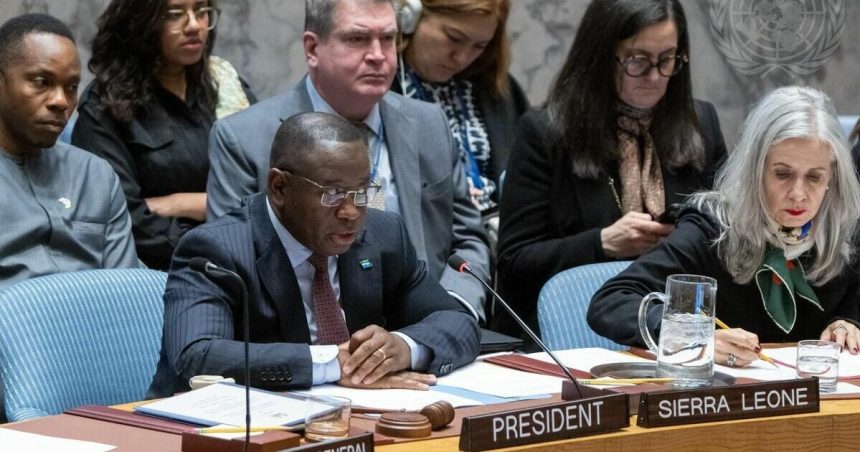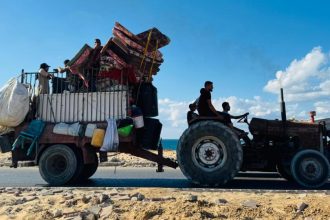The President of the Economic Community of West African States Commission, Omar Touray, has warned that the rising wave of terrorism across West Africa and the Sahel has reached a level that threatens the very survival of the region.
Touray delivered the warning while briefing the United Nations Security Council during its 10,047th meeting on regional counterterrorism efforts.
According to a statement issued by the ECOWAS Commission on Friday, the briefing focused on the escalating insecurity and the steps being taken to confront it.
Touray told the council that terrorists were now waging what he described as “economic warfare,” explaining that they were increasingly disrupting fuel supplies and trade routes across member states.
The president noted that this poses an existential threat to both Sahelian and coastal West African states.
The statement further read that Touray outlined a range of ongoing ECOWAS initiatives aimed at restoring stability, including rebuilding trust and advancing political dialogue with former member states Mali, Burkina Faso and Niger, which recently exited the bloc.
He also noted efforts to tackle the socio-economic factors that fuel violent extremism.
The statement partly read, “Touray outlined ECOWAS’ kinetic and non-kinetic measures, including the accelerated operationalisation of the ECOWAS Standby Force.”
It added that “President Touray reaffirmed ECOWAS’ commitment to working closely with the UN, AU and all partners to safeguard peace, stability, and resilience across West Africa and the Sahel.”
The UN Secretary-General, António Guterres, also addressed the Council, raising concern over the deteriorating security and humanitarian conditions in the Sahel.
Guterres emphasised the urgency of coordinated regional and international action, saying there was a pressing need to curb the spread of terrorism and violent extremism.
Sierra Leone’s President Julius Maada Bio, who chaired the meeting in his capacity as Chairman of the ECOWAS Authority of Heads of State and Government, described terrorism as a global challenge that demanded renewed cooperation.
Extremist violence in West Africa has intensified over the past decade as jihadist groups linked to al-Qaeda and the Islamic State expanded from northern Mali into Burkina Faso and Niger, taking advantage of weak security structures and porous borders.
By the early 2020s, these groups had turned Burkina Faso into one of the world’s deadliest terrorism hotspots and were increasingly pushing toward coastal states such as Benin, Togo, and Côte d’Ivoire.
Regional security efforts have been further strained by a series of military coups in Mali, Burkina Faso, Niger, and Guinea, which disrupted coordination within ECOWAS.
The departure of major international missions, including Operation Barkhane and the UN’s MINUSMA, reduced external support just as extremist networks broadened their reach.
These developments have prompted ECOWAS to reconsider its security framework and move toward deploying a regional standby force.
In response to the escalating violence, ECOWAS is accelerating plans to deploy its standby counterterrorism force. The mission will commence with 1,650 personnel and will expand to 5,000 troops as additional support becomes available.









